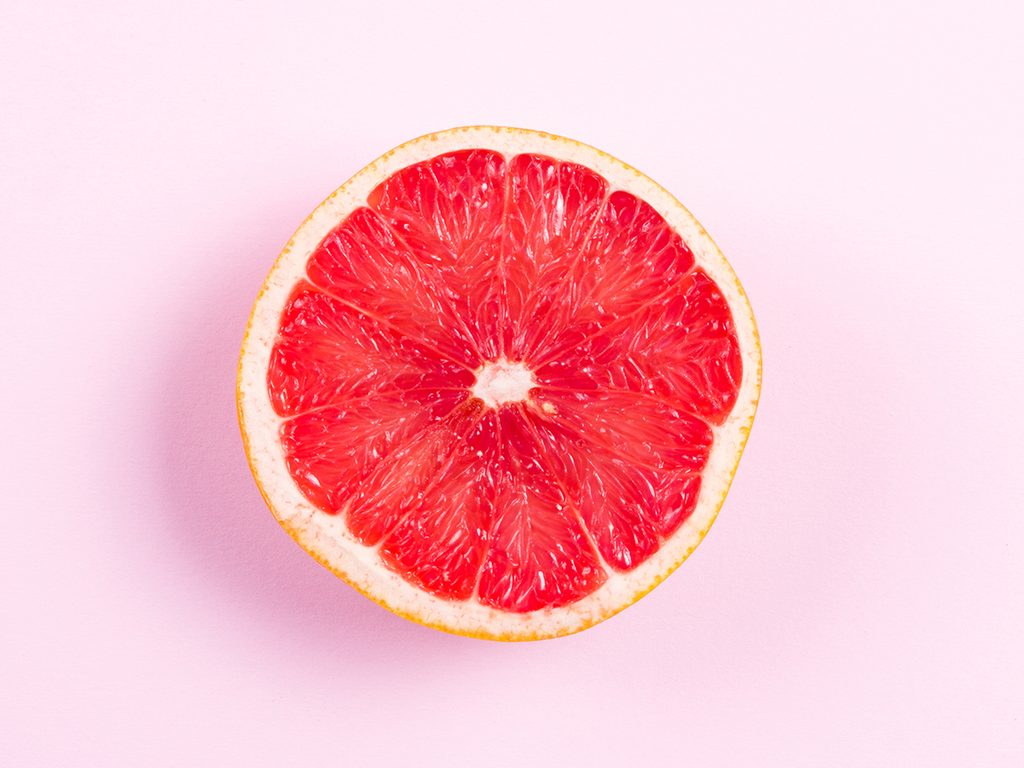5 Myths About Your Lady Parts–Debunked

Embarrassing but true, many women don't know a whole lot about their vaginal health — and talk about it even less. Consider this a primer for your lady parts.
We’ve had a lot on our minds over the past few months and, understandably, the state of our vaginas has not been a top priority. But it’s time to get back to taking care of our whole health, and that includes some down there self-care.
Many women aren’t equipped with the best information, though. For starters, we tend to use the term vagina to describe our entire down-there anatomy, but it’s actually just the tube that connects the vulva with the cervix and uterus. The outside of our hoo-ha, including the vaginal lips and clitoris, is properly called the vulva. But misnaming our body parts is only part of the problem.
Between ladies relying on the incredibly unreliable Dr. Google and wellness empires like Goop (which is still peddling its now-infamous vaginal Jade Egg for $94, despite a settled lawsuit against its health claims), women are flooded with misinformation. We asked Dr. Amanda Selk, a staff ob-gyn at Women’s College Hospital in Toronto, to help us set the record straight with some straight-up truths about our intimate health.
Truth: Your Vagina Doesn’t Need Moisturizer
At least probably not one you can pick up at the drugstore (unless, of course, you’ve cleared it with your doctor first). A dry vulva, however, should always be investigated, not just self-treated, because it can be a red flag for a more serious medical condition, like a thyroid issue or an autoimmune disease.
Younger women tend to experience vaginal dryness during the hormone roller coaster postpartum and while breastfeeding. It can also be caused by medications, including certain antihistamines and antidepressants, but it’s rare. If the dry sensation is accompanied by an itch, it’s likely caused by a drop in estrogen levels, which can result in thinner tissues and less moisture in the vagina and typically occurs after age 50, when many of us hit menopause.
In the case of menopausal dryness, an over the-counter moisturizer can offer a bit of relief, but your health care practitioner will probably recommend vaginal estrogen to restore moisture, says Dr. Selk. “It is very safe and can dramatically improve your quality of life,” she says.
If you have ruled out any underlying medical issues and still feel a bit parched down there, your vulva cleaning routine might require an adjustment. Cleansing wipes, body washes and bar soaps tend to be irritating to the area’s delicate skin balance (and, hopefully this goes without saying, so do internal cleansers — your vagina never requires washing). A gentle rinsing in the bath or shower is ideal, but if you feel you must wash your vulva, Dr. Selk recommends using a non-soap gentle facial cleanser. Selk recommends using any vulva-vaginal products with caution, including moisturizer. “These products are all about marketing,” says Dr. Selk. “A lot of my time spent in gynecology involves dealing with problems or skin conditions related to people using products they don’t need to.” (Here are some other mistakes with your vagina you may be making.)
Finally, let’s be clear: Vaginal moisturizer is not the same thing as lube. If you only experience dryness when you’re intimate, keep reading for more on what can cause pain during sex.
Truth: Pain During Sex Is Not Normal
However, it is common. Nearly three out of four women will, at some point, feel pain during intercourse, according to the American College of Obstetricians and Gynecologists.
“We’re always trying to determine if it’s pain on entry or deep pain because the causes and treatments are different,” says Dr. Selk. Deep pain during sex could indicate a cervical infection, endometriosis (a condition where tissue that lines the uterus is also found on the ovaries or fallopian tubes) or pelvic inflammatory disease.
Pain that’s confined to the vulva can be complicated, too. It’s important to get to the bottom of, as it can be caused by anything from infection to cancer. If the pain has no indentifiable cause, and lasts longer than three months, it could be a chronic pain condition called vulvodynia. “Depending on the study, anywhere between 8 and 15 percent of women will experience vulvodynia at some point in their lives,” says Dr. Selk.
Pain on entry can also be due to a lack of arousal. Stress, fatigue and relationship problems can also crush your libido. Whatever the cause, there are treatments. In addition to seeing your ob-gyn, self-care measures like making time for sex, talking to your partner and focusing on activities that don’t cause pain, like oral sex and masturbation, are key. You might also consider using a lubricant, which can be water-based or contain silicone and is meant to make things wetter and comfier during sex.
(Related: 13 Sex Problems You Should Take Seriously)
Truth: Thongs Can’t Cause Yeast Infections
“It’s truly a myth that a thong will make yeast move into your vagina,” says Dr. Selk. For starters, candida already lives in the body, including the vagina ”A lot of women have yeast, but it doesn’t cause them any problems,” she says. It’s only an issue if it triggers the classic burning sensation, swelling and cottage-cheese-like discharge that have become the hallmarks of a yeast infection, also called vulvo vaginal candidiasis. These unpleasant symptoms are likely due to an overgrowth of candida, but they can also be a reaction to yeast, says Dr. Selk. “Different people may have a different immune response to it,” she says.
Either way, if you’re one of roughly 75 percent of women who will experience a yeast infection at some point, your knickers are not to blame. “I’ve never seen a treatment for recurrent yeast infections work by telling someone to stop wearing a thong,” says Dr. Selk. If your lady parts are sensitive, stick to comfortable styles and breathable fabrics, like cotton and bamboo, but ultimately you should wear what you want, she says.
(Related: What Gynecologists Wish You Knew About Yeast Infections)
Truth: Keto Crotch Is Not (We Repeat, Not) A Thing
It is not a medical term and hasn’t been studied so far, but check out a keto feed in an online chat space like Reddit and you’ll find women posting that they’ve noticed changes in their vaginal odour after going low-carb. Dr. Selk chalks this up to the power of suggestion. It could be that more women are noticing their down-there smell (which changes all the time, by the way) because we’re suddenly talking about it. “People don’t always pay attention, but if they’re suddenly worried about it, they might start taking notice and think there’s a problem when there isn’t,” says Dr. Selk.
How much our diet — keto, vegan or otherwise — affects our intimate health is hotly debated. Some early research shows that certain nutrients affect the delicate pH balance of the vagina. A recent review in the journal Nutrients suggests that an increase in saturated fats ups the incidence of bacterial vaginosis (an overgrowth of bad bacteria). But study authors also point to a higher glycemic load and lower nutritional density, which don’t necessarily coincide with eating keto. The review also suggests that a diet rich in folate, vitamin E and calcium seems to be connected to a lower incidence of some infections. And since the vagina maintains a delicate pH and bacterial microbiome, much like the gut, researchers are looking at the role that probiotics (via foods like yogurt and kimchi and supplements) might play in vaginal health.
If you suddenly have a weird odour going on down there, especially if it’s accompanied by itchiness, burning or abnormal discharge (with a green tinge, for example), see your doctor. You may have a gynecological issue that’s unrelated to your low-carb diet. A change in vaginal smell is a classic sign of bacterial vaginosis, which is the most common vaginal infection for women ages 15 to 44 and needs to be treated with an antibiotic, according to the Centers for Disease Control and Prevention in the United States.
(Related: Yeast Infection Cures For a Happy, Healthy Vagina)
Truth: Many Women Have a Poor Body Image Down There
Just like every other aspect of physical appearance, it’s important to acknowledge that there is no normal. Unfortunately, the images of genitals typically shown in pornography do not portray the range of variations in size, shape, colour and symmetry. This can leave many women feeling down about how their down-there area looks. If you’re ready to see what different bodies look like, check out the Labia Library, a not-for-profit organization run by medical professionals in Australia that includes photos of a variety of labia. “It’s there for people around the world to see that there are so many differences, and that’s OK,” says Dr. Selk.
How you feel about your vulva is important for your lady power, but it’s also key for your health. Sadly, many women are too ashamed or shy to really get to know this area of their anatomies, and this can come at a cost. Vulvar cancers are rare and slow-growing, but Dr. Selk says she still sees patients with large growths that could have been prevented with earlier intervention. “Feeling embarrassed, not looking at their skin and being scared to talk to anybody can lead to problems,” says Dr. Selk. “Checking in once in a while to learn what you look like is important.”
Next, learn what other vagina myths gynecologists want you to ignore.




